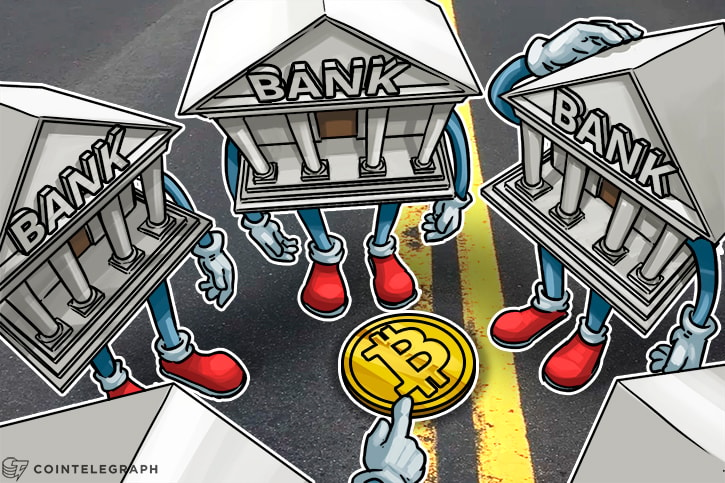There was a time where Bitcoin was not even on the radar, it was a novel idea that was primarily used by thieves and drug dealers on the dark web. Nothing to be afraid of in terms of holding a monopoly on money.
However, that same little upstart is now disrupting the system of things; from Bitcoin and other cryptocurrencies, ICOs and the ever impressive Blockchain technology. This is now a legitimate threat on traditional banks.
"Bitcoin’s skyrocketing run in value, as well as adoption and mainstream acceptance, has led to banks - and regulators, getting very nervous and instigating a few knee jerk reactions. These reactions are, however, simply asserting the fact that Bitcoin is a legitimate disruptive threat."
Bitcoin taking on the banks
Regulators are trying to play catch up with Bitcoin and other cryptocurrencies, realising now that it’s not going away. In fact, it is challenging their monetary system which is intrinsically linked to banks, and especially central, government-backed, banks.
China, especially, Russia, recently, Japan and the US have played their hands in varying degrees of harshness in efforts to try and control the decentralized monetary idea.
In fact, traditional centralised, powerful organisations like banks, governments, regulators and technology behemoths are all spending billions in figuring out how to use and control distributed trust technologies.
A powershift
Banks have existed unchallenged for hundreds of years, and that is the key issue here; Bitcoin, backed by a solid platform such as Blockchain technology, is a ghost that is incredibly hard to control due to its decentralized nature.
"John McAfee has been brazen about regulators’ power plays to try and control Bitcoin, saying that they will never be able to ban it."
The power and control of money is being ripped away from traditional institutions, which can also be seen on Wall Street. Some of these traditional investors are siding with what could be the future, while others vehemently denounce it.
Individuals can now enter into direct peer-to-peer trusted exchanges with strangers. They no longer need a central institution to vouch for the other party.
Just like the fax machine, the library, even metered taxis, new technologies have come along and made others obsolete. Banks are now in the sights of Bitcoin and are in their death throws, as they lash out with the power of states behind them.
However, there’s no stopping progress, and even with state-backed regulations trying to wrestle the money of the people under control, banks have every reason to be nervous.


